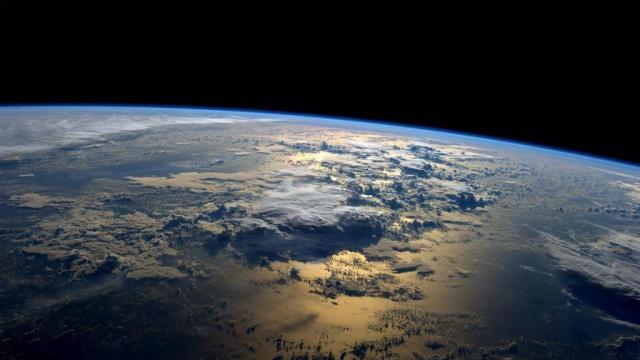Welcome to the future. A future that me, and many people who put their faith in science, have been staring at in bewilderment, denial and abject terror for the better part of a year.
Image: NASA
Donald J. Trump, a climate denier, is the 45th President of the United States. As such, he poses a unique, unprecedented threat to our shared global environment and nascent international ambition to transition off fossil fuels. The implications of this US election for the future of our fragile biosphere cannot be overstated.
But I’m not here to tell you the world has ended — just open any mainstream news outlet or social medial channel if you’d like to slather yourself in apocalyptic rhetoric today. I’m here to tell you that now, more than ever, we need to put our noses to the grindstone and fight for a better, safer, cleaner future.
Let’s start with the good news: For now at least, there exists a global climate treaty. Following a surge of ratifications as the US presidential election heated up this spring, the Paris Agreement entered legal force last week. The agreement was pushed into effect this year precisely so that it could not immediately be “cancelled” were Donald Trump to assume the presidency. Now, it will take the US four years to formally withdraw.
Still, the Trump administration, with the support of a Republican-controlled House and Senate, could, and almost certainly will, ignore the tenuous climate agreement. Trump could scrap the Clean Power Plan, and other measures President Obama has put in place to meet America’s voluntary emissions reduction goals. Trump has promised to “unleash” American coal, oil and natural gas production; resuscitate the Keystone XL pipeline; expand offshore drilling; and roll back environmental regulations that protect our air and water. He’s very likely to install a Supreme Court Justice who will oppose meaningful federal climate action for decades.
Trump’s actions could have ripple effects across the world, causing up-and-coming carbon-giants like India to abandon the Paris Agreement, or significantly scale back their ambition. International environmental groups meeting to discuss the climate deal in Morocco this week have already agreed that a drying up of US leadership would be disastrous for the accord.
But none of this means the fight against climate change is over. China, the world’s largest carbon emitter, is likely to continue aggressively expanding its wind and solar energy capacity, whether or not the US follows suit. Other nations will, too. Worldwide, renewable energy accounted for more than half of all newly installed power capacity last year. As the price of clean energy technologies falls, the market for them will keep growing.
In America, progress toward a green economy has been slow, and it’s poised to get even slower. America can say goodbye to hopes for a carbon tax; federal clean energy tax credits; and a lot of government spending on R&D for wind, solar and electric vehicles. But there are still many different avenues for pursuing climate action at the state and local level. California and New York State have both put forth ambitious climate plans, offering a roadmap for states around the US.
Finally, individual actions — I’m looking at you, readers — matter now more than ever. It’s always been easy to feel powerless when confronted with something as big and scary as global climate change, but the stark reality is that this planet-wide mess is the sum of many individual actions and lifestyle choices.
What can you do? You can eat less meat and dairy, especially factory-farmed beef. When you do eat meat and dairy, you can support sustainable, local food systems. You can drive less, and walk and bike more. You can replace all of your incandescent bulbs with energy-saving LEDs, buy more efficient appliances, turn down that AC in the summer and get a programmable thermostat. If your local utility has the option, you can opt for your household to draw power from clean energy sources — my utility does, and my electric bill hasn’t gone up more than a few bucks a month since I made the switch.
If you have the money, you can buy an electric car, or become an early adopter of Tesla’s new solar roofs, or ideally both. Those with wealth and privilege need to chip in more to ensure that clean energy technologies are one day accessible to everyone.
More than anything, you need to not give up hope. As Obama rightly noted yesterday, the sun did rise this morning, and it rose on a beautiful planet. That planet needs you now more than ever.
